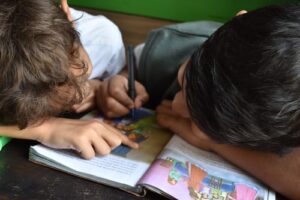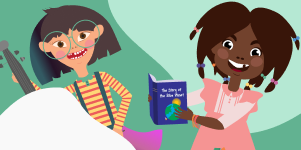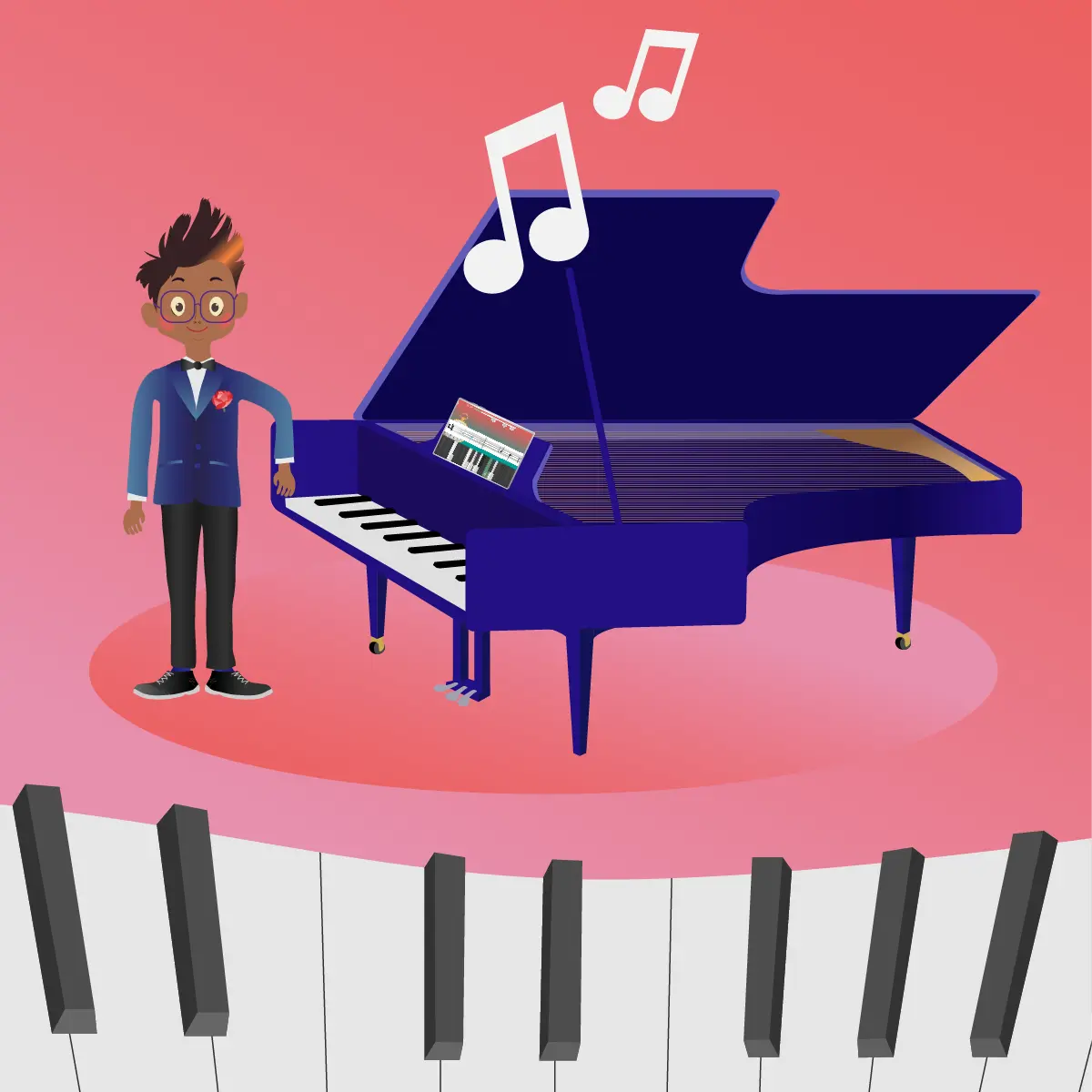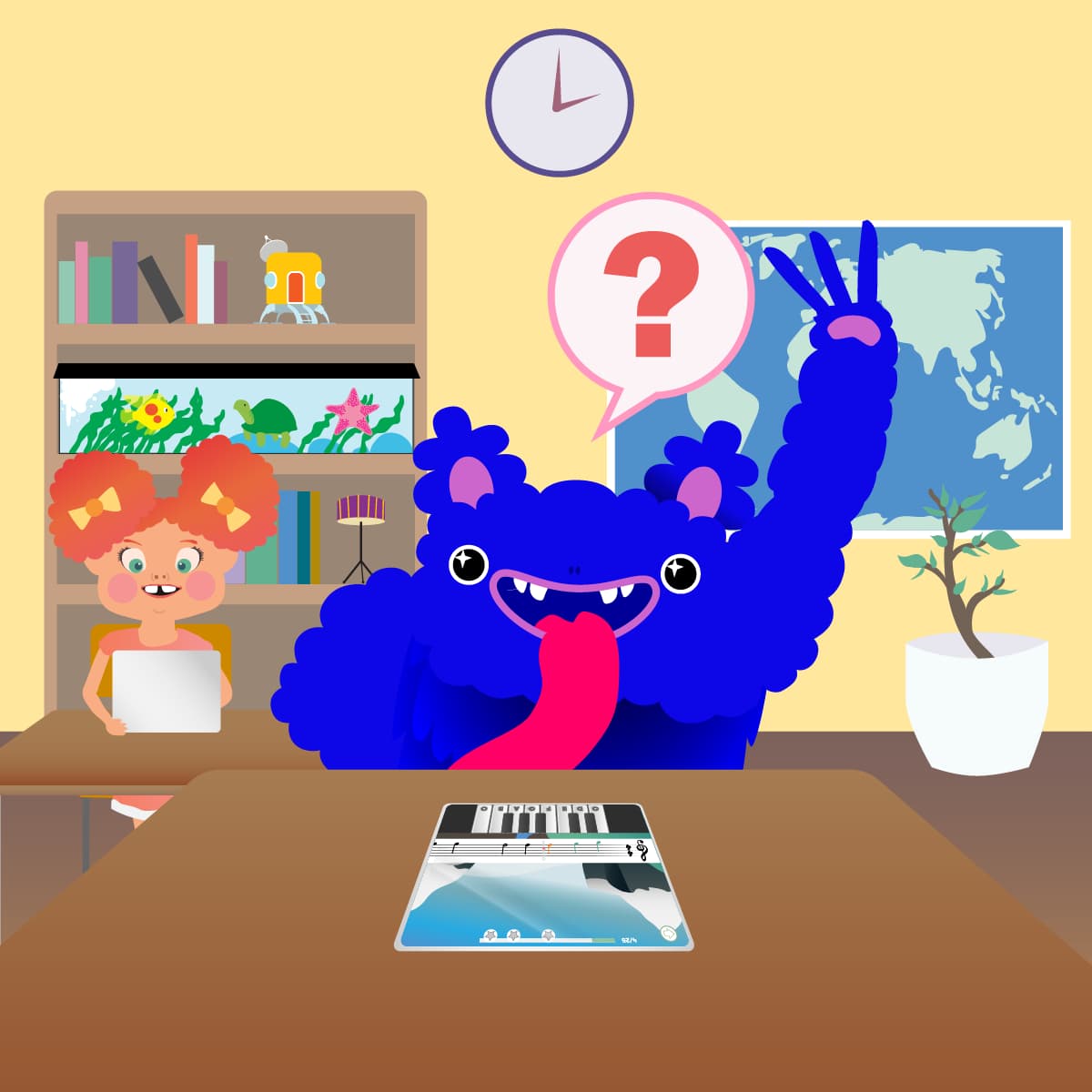By Arctic Meta,
Reading is a fundamental skill that most people assume is sufficiently taught in schools, and for a lot of people, it is, but there is a large portion of society who never really reach their true reading potential.
There are different levels of reading, and only 2% of the population are comfortable at the top layer. Of course, this is to be expected because the top layer is more likely to be filled with large words that the majority of the population would never use or need to know. However, in the US, an astonishing 50% of adults cannot read a book intended for an 8th-grade reading level.
There are many reasons for this ranging from educational access to geographical location and many other factors, but it’s certainly something most developed nations are trying to improve.
Contrary to popular belief, there are very few skills that are ‘like riding a bike,’ and reading is one of them. The ability to read and comprehend aren’t skills that a student achieves and has forever; they are like muscles; they need to be constantly exercised to be efficient. The surest way to improve and maintain reading ability is to make sure it is a consistent part of life. This can be hard for kids, especially if they don’t find reading to be fun.
So how do you make reading fun for kids? What can parents do to help improve their kids’ reading experience? Read on to find 16 helpful hints to make reading an enjoyable experience for anyone.
Read Out Loud

Taking the time to read out loud to a child does more than just entertain them. Reading a story out loud allows kids to hear language used in a normal context. It helps them to become familiar with words they might not have heard before while also giving them an auditory context to help them determine their meaning. If they don’t know a word, they can also stop their parent and ask what it means. Effectively using new vocabulary is the fastest way to cement it to memory.
Kids also crave quality time with their favourite people, so forming a habit of reading to them from an early age can create a feeling of comfort that they later associate with reading as they get older.
Choose The Right Books

It’s much easier to keep someone focused on something if they’re actually interested in it, and although kids are still discovering the world, they already form some strong interests from a very early age.
Choosing books that satiate their interests is incredibly important. It’s always worth asking children what kind of stories interest them. Do they like adventure? Do they like fantasy? Perhaps they’re already a non-fiction history buff? Whatever their interests are, it’s good to aim for that category. Remember, keep asking them what they enjoy. As they learn and develop, their taste in books will change.
Act Out The Story

A great way to strengthen reading comprehension is to get children to recount the story they have heard. They could draw a picture of a scene and even act out all of the character’s parts. This helps them to see real-world examples of vocabulary they have learned along with an element of fun that will further cement any attained knowledge.
Encourage All Forms of Reading

It’s incredibly important to understand that reading isn’t just about picking up a book and immersing oneself in the story on the pages. It’s very beneficial to support all forms of reading.
In the past, many parents have seen comic books as a simplification of literature. The truth of the matter is that comic books follow a very strict discipline of explaining a lot in a very small format, which often leads to vocabulary and terms that people don’t usually become familiar with till their late teens.
Encouraging all forms of reading can also be as simple as getting a child to read the ingredients of a maple syrup bottle at the breakfast table. This gives them the chance to show off their reading abilities but also allows for organic opportunities to explore reading comprehension.
The bottom line is that if reading is fun and all around them, children will stand a better chance of excelling at it.
Pick Books To Suit Your Child’s Interest

One of the biggest struggles for anyone who has to educate kids is to find a way to make it interesting to them. The good news is that with reading, all you need to do is find subjects, books, or topics that are interesting to the child.
Every human being is complex, but children are thankfully much more black and white about the things they like and dislike. They will also consume anything related to a topic of their interest in an endless manner. This is the reason why Disney will always have merchandise to go with each film they release. If a child loves Elsa in Frozen, they will want to immerse themselves in a world filled with all things’ Elsa.’
This natural tendency to develop an obsession with something is normal and can be a great tool to use in helping children develop as readers. If, as a parent, you know topics your child is interested in, you can cater their reading selection to include this.
Create a Reading Space

Creating a special area where reading is the main aim can do wonders for creating excitement. This doesn’t have to involve major renovations. Simply creating a pillow fort or throwing some blankets over a couple of chairs is all that’s needed to create a reading sanctuary.
Taking the time to set up a designated reading space can ignite the imagination, give a child a space they feel is their own, and also add an extra layer of magic to reading. Imagination helps to develop a child’s cognitive abilities, and the more chances they have to enhance their imagination, the better.
Listen to Audio Books

For both adults and children alike, audiobooks can help make the process more enjoyable. Reading is a fundamental skill that everyone needs to master in order to have the best opportunities later in life, but the physical act of sitting still and reading a book doesn’t elicit the same response from everyone.
Audiobooks can allow a child to experience a story or book in a new way. It can help engage kids who are auditory learners and also give them exposure to their own language spoken with different accents.
Teach Connections Between Books And Life

Books are a fantastic way for young people to explore things without having to experience them directly. A simple tool to enhance the reading experience for a child can be to explore similarities with real life in the stories they are reading.
For example, the Chronicles of Narnia begin with a group of children travelling by train to the countryside during the Second World War. Although the book is a fantasy novel, its beginning is based on historical facts. This can create a wonderful educational and bonding experience with a child by simply asking questions.
Do you know why the kids had to go to the countryside? Would you like to do that? What would you miss?
Let Your Children Choose What to Read

When children are allowed to be in control of what they read, they become way more invested in the reading process. Giving them a choice also allows them the chance to take risks. A child who chooses what they are going to read with a parent might be more inclined to pick a book that’s more challenging. Letting them choose the reading material also gives a parent valuable insight into what their current interests are, which can often change at the drop of a hat.
Start a Series

Much like choosing a Netflix series that has 14 seasons, starting a book series can fix the problem many kids have with not knowing what to read next. Reading a series can also be a great bonding moment for parents and kids. Perhaps the series is something they do together, or the series is an old favourite, like ‘Lord of the Rings.’
Starting a book series can help keep children interested in reading for the long term because they will always be curious to know what happens next. As they get older, they can also try reading different books by the same author. This helps them to discover if it’s the style of writing they’re attracted to or the content of the story.
Set Time For Reading Each Day

In a time where most people spend enormous amounts of their day looking at screens (no matter how old they are), setting aside a specific time each day to read together can do wonders for bonding, positive mental health, and promoting the enjoyment of reading.
Having a specific reading time gives kids something to look forward to while also adhering to a routine which they crave because it provides comfort and predictability. It can also help to positively reinforce other elements of routine in the day. If a kid loves reading time and knows that they need to finish their homework and brush their teeth before it can happen, they will get pretty good at ticking those things off their ‘to-do list.’
Teach Reading Strategies

Ultimately the end goal for any parent who is joining their children on a reading journey is to have them, self-sufficient readers. They will, of course, learn strategies for reading at school, but it doesn’t mean parents can’t also get involved.
Kids trust their parents more than most grown-ups in their lives, and they feel an incredible sense of satisfaction when they have been able to use tools they have learned to solve a problem. When a parent takes the time to encourage their child to ‘sound a word out’ or ‘use the other words around it to figure out its meaning,’ their child is far more likely to adopt these strategies in everyday life.
Use Digital Resources

The technological advancements of the past two decades have meant that access to educational resources has never been easier or faster. There are so many different pieces of software and apps out there to help enhance the learning process for both parents and kids alike.
For example, the Mussilla Music School is an award-winning application that helps kids learn how to read music and play instruments, all from the comfort of just about anywhere. It incorporates digital technology with the concept of play to provide kids with a fully interactive learning experience that will help them discover, play, compose and experiment.
This kind of technology also exists for reading, and there’s actually an app like Mussila in the works, but more on that later.
Ask Questions About the Books

Kids are like sponges; they can absorb information and regurgitate it at a much faster rate than adults because they are constantly learning from their environment at almost every moment of the day. Storing information is a necessary and useful skill to have, but knowing what to do with that information is something completely different.
Everyone knows that kids are full of questions, but sometimes it can be valuable to turn them into the interviewee rather than the interviewer. Asking kids questions about the books they’re reading helps them to cement the knowledge they have attained, but it also helps them understand that learning, reading and understanding things helps to make people more interesting.
Discuss The Stories And The Characters

Reading and comprehension tend to go hand in hand from an educational viewpoint, but they are actually completely different skills. For example, a person can learn the alphabet and natural sounds of a language to the point where they could see a new word and pronounce it perfectly, but it doesn’t mean they know what that word actually means.
Discussion is an exceptional tool for helping kids to understand the words they are reading on the page. As a parent and child are reading together, it’s natural that a child will ask what certain words mean, but it’s equally important to ask them what a full-sentence means, how they feel about it and if they are enjoying the story.
As kids get older having discussions about the characters and events of the stories they are reading can help them fine-tune their ability to communicate their opinions. They might not like a particular character; ask them why? If there’s a decision that was made in the story, would they have made the same choice?
Kids discover and refine their understanding of the world through their own eyes, and learning how to communicate what certain things mean specifically to them will give them a great advantage in the future.
How Mussila Can Help Develop Children’s Reading

Since its creation, Mussila has revolutionised musical education to provide a method that is fun, inexpensive and accessible to pretty much anyone who can download an app. The great news is that Mussila has taken this approach and applied it to reading.
WordPlay is the name of the newest addition to the Mussila family, and it will take the same incredible approach to create a digital reading tool to help give kids the best opportunities they can possibly have to get a head start.
Make sure to check out the Mussila Blog and follow Mussila on Social Media to be alerted as soon as this innovation in EdTech becomes available.
Conclusion

The part of the brain that helps humans to recognise visual information evolved over millions of years to the point where, as a species, they were able to develop language, write and, of course, read. Now more than ever, the ability to read and comprehend isn’t just a fundamental skill for school and work; it’s a fundamental skill for life.
In 2021, those who are able to read information and decipher through things like fake news and misinformation will have a definite advantage over those who don’t. Helping kids to become better readers now will set them up for the best possible success in the future, so sit down, open a book and get reading.














